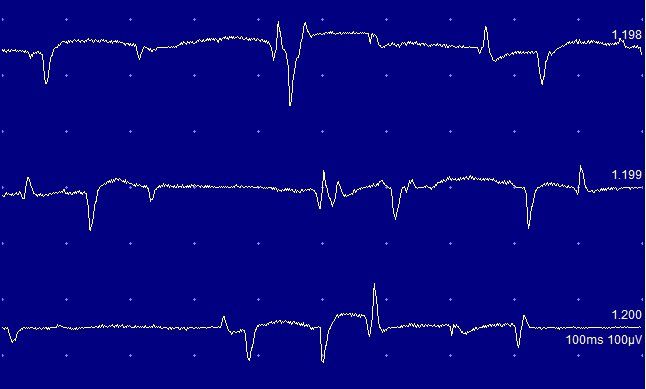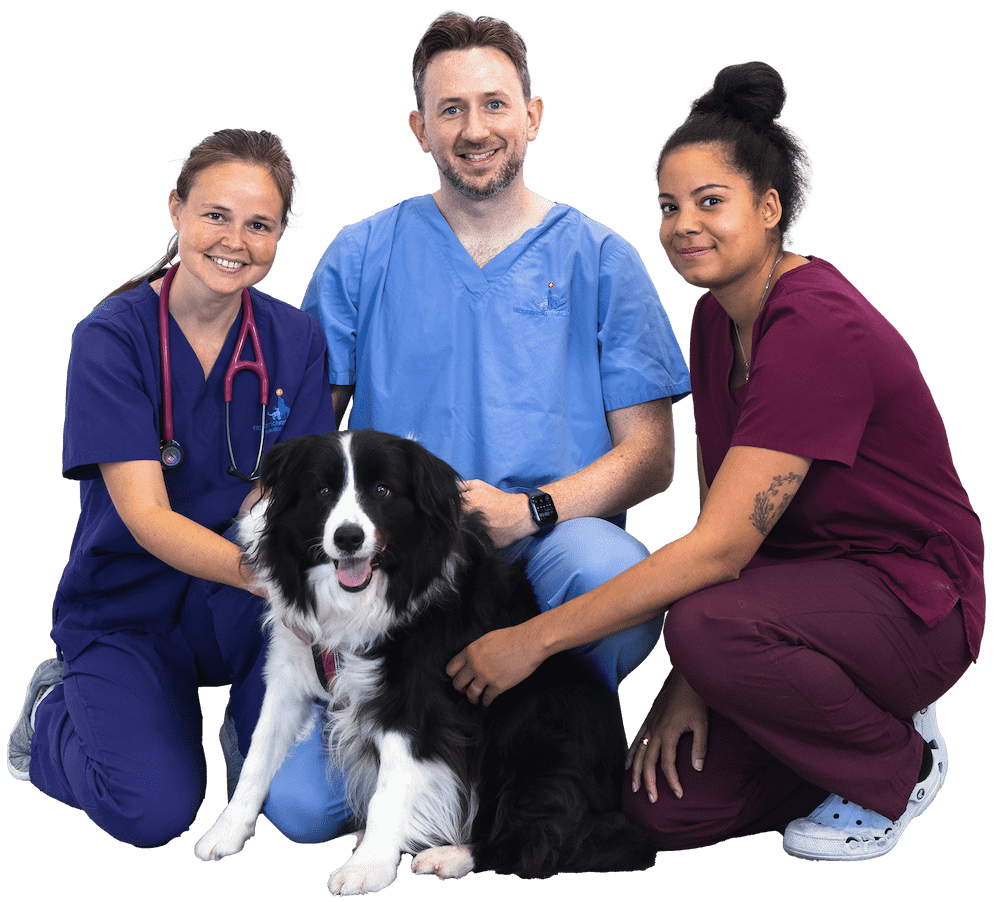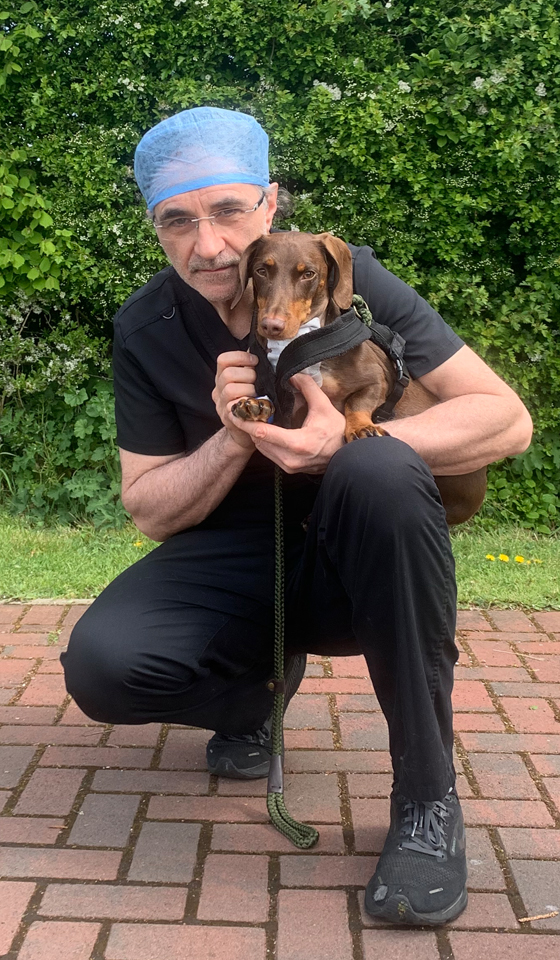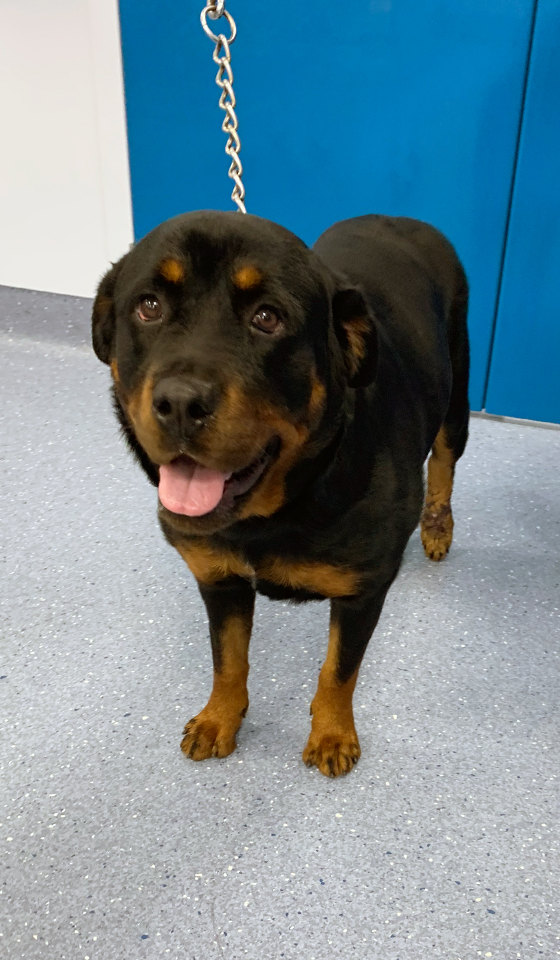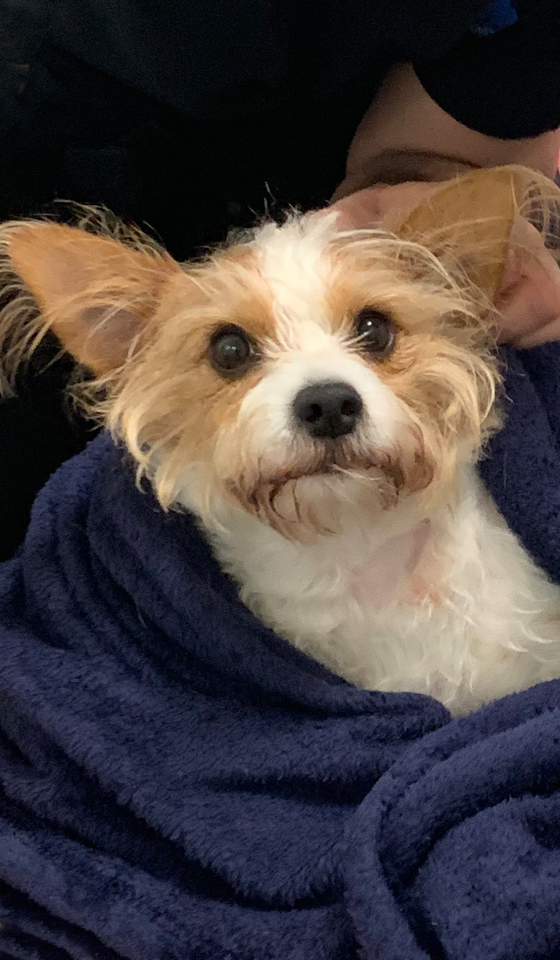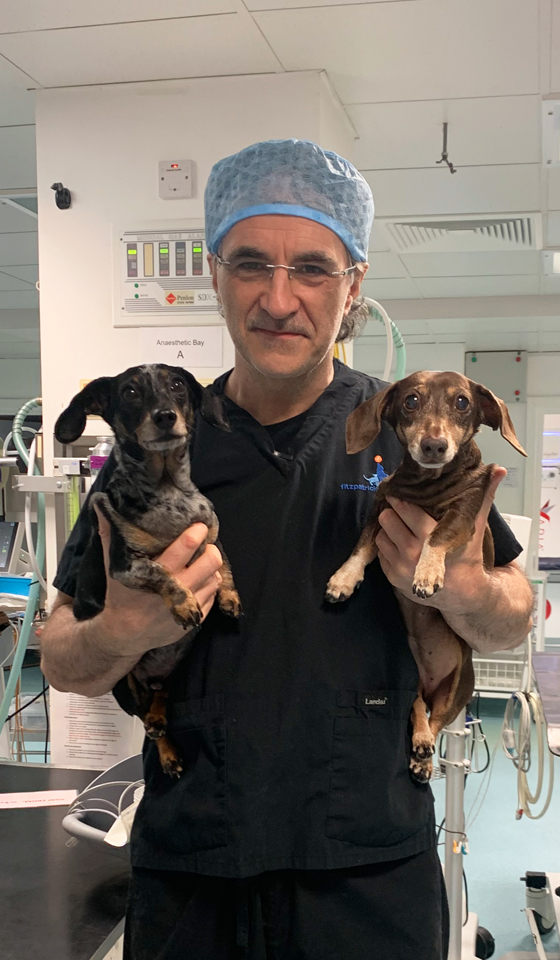What is neuromuscular disease?
The nervous system comprises the brain, spinal cord, peripheral nerves, neuromuscular junction and muscles. All these structures make up the nervous system. The nervous system can be subdivided into the central nervous system (brain and spinal cord) and the peripheral nervous system (peripheral nerves, neuromuscular junction and muscles). The central and peripheral nervous systems work in unity to provide all the bodily functions.
Neuromuscular disease is a wide range of diseases that affect the peripheral nervous system i.e. affects motor and sensory nerves that connect brain and spinal cord to the rest of the body. They can occur at any point along the peripheral nervous system i.e. peripheral nerve (causing neuropathies), neuromuscular junction (causing junctionopathies) or the muscle itself (causing myopathies).
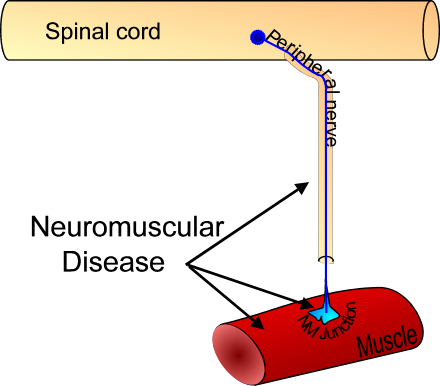
How can I tell if my dog has neuromuscular disease?
Neuromuscular disease is suspected in patients with weakness or collapse episodes where clinical examination has rules out disorders affecting other systems. Neuromuscular disease may often be difficult to diagnose and your primary care vet or neurology clinician may ask you to record video footage of your pet’s episodes. Signs of weakness vary such as neck flexion toward the chest, drooping stance and gait, stilted gait and exercise intolerance i.e. inability to complete a required physical task successfully. Some animals become unable to perform any form of voluntary movement and they will present in lateral recumbent position i.e. lying down and unable to rise (flaccid paralysis). In some cases, the muscles of the pharynx or oesophagus responsible for swallowing can be affected and the risk of aspiration pneumonia may be high. In some of the most severely affected patients, the muscles responsible for breathing can be affected and it may be necessary for oxygen supplementation or mechanical ventilation in order to prevent acute respiratory failure.
What is the cause of neuromuscular disease?
The list of causes of neuromuscular disease is extensive and there are many that have not yet been classified. Examples include degenerative, metabolic, neoplastic, nutritional, inflammatory, infectious, toxic or vascular to name but a few. Causes can be divided into those diseases which affect the various structures of the neuromuscular system; muscles (myopathies), junctionopathies (neuromuscular junction) and neuropathies (peripheral nerve). Diseases somewhere else in the body can also indirectly affect the function of the neuromuscular system. Your neurology clinician will be able to advise a root cause for your dog or cat’s clinical signs.
How is neuromuscular disease diagnosed?
Physical and neurological examination
Firstly, your primary care vet or neurology clinician will perform a thorough physical examination in order to detect any organ system failure that can mimic a neurological condition, such as cardiac or respiratory disease.
Paw positioning i.e. the time taken to correct a knuckled-over paw is usually normal, however hopping response is generally reduced due to weakness. If during neurological assessment spinal and/or cranial nerve reflexes are also depressed, then a neuromuscular disorder is strongly suspected. Patients with suspected myasthenia gravis will often have an absent or fatigable palpebral reflex (blink) and poor eye movement.
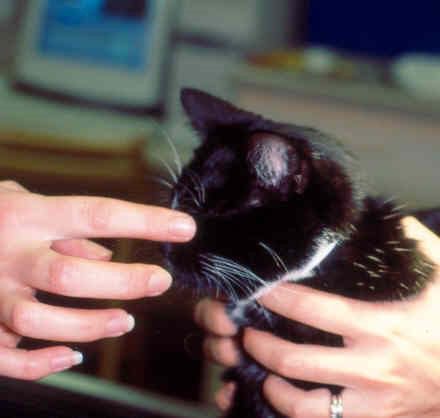
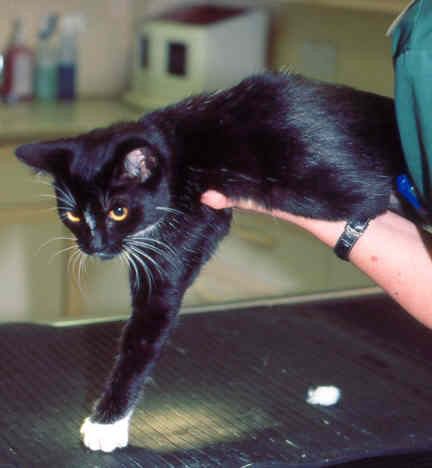
Blood samples – haematology and biochemistry
Many neuromuscular diseases can be eliminated or suggested by performing routine blood tests for example electrolyte disorders (hypokalaemia, hypocalcaemia,) and endocrinopathies (hyperadrenocorticism, hypothyroidism, hyperthyroidism, diabetes mellitus).
Depending on the severity of your pet’s clinical signs your primary care vet may perform some of these blood tests prior to referring your pet to see one of our neurology clinicians, however, if they have not been performed they would be done routinely as part of the neurological investigations at our hospital. Whether performed by your primary vet or by one of our neurologists, the results from such tests can prove to be extremely valuable and can help the neurology clinician decide on the most appropriate investigation pathway or treatment plan for the patient.
Other blood tests
If initial blood tests are suggestive of a neuromuscular disease or a disease somewhere else in the body which is indirectly affecting the function of the neuromuscular system, additional specific tests such as the ones for endocrine disorders may be recommended. Blood tests may also be performed to test for myasthenia gravis (acetylcholine receptor antibody); infectious problems (toxoplasma gondii and neospora caninium) and / or mitochondrial myopathies (blood pH and abnormal levels of organic acids). If your pet’s problem suggests a specific inherited problem then a specific genetic test may be recommended e.g. centronuclear myopathy (Labrador retriever myopathy) or exercise-induced collapse in Labrador Retrievers. More often than not, the more complex blood tests have to be analysed at specialist external laboratories within the UK, Europe or USA.
For more information on neuromuscular disease and exercise-induced collapse in Labrador Retrievers and other breeds please check the following links:
- Comparative Neuromuscular Laboratory
- Centralnuclear Myopathy in Labrador Retrievers
- Exercise Induced Collapse in Labrador Retrievers and Related Breeds
Electrophysiology
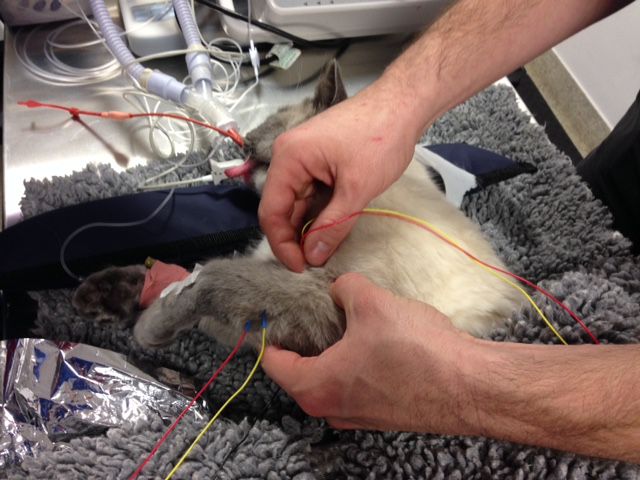
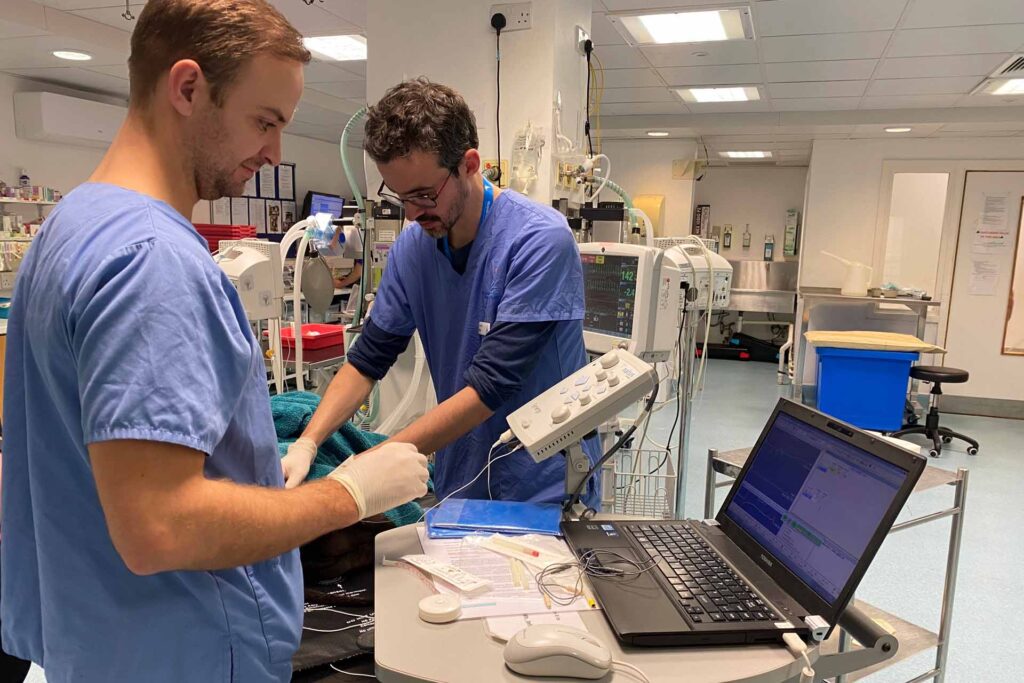

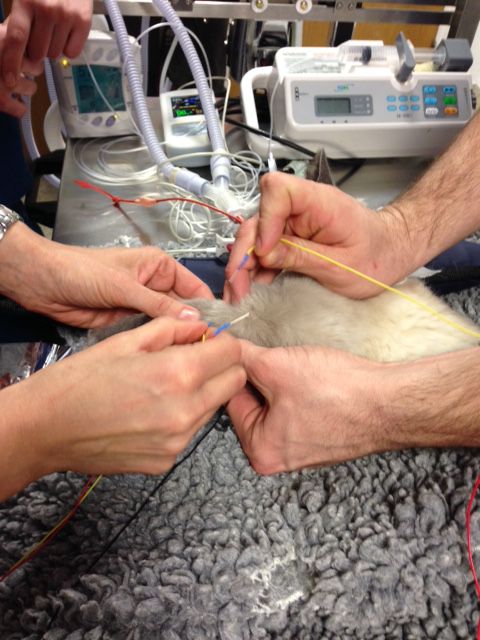
At Fitzpatrick Referrals, we have specialist equipment which allows us to perform electrophysiology study [electromyography (EMG) and nerve conduction velocity (NCV)]. However in order to perform such tests, your pet requires to have a general anaesthetic. Electrophysiology study is used for diagnosing neuromuscular disease and specifically localising the problem to the nerve, neuromuscular junction or muscle. It can also provide more specific information, for instance, it is possible to ascertain where the disease is more specifically located within the nerve.
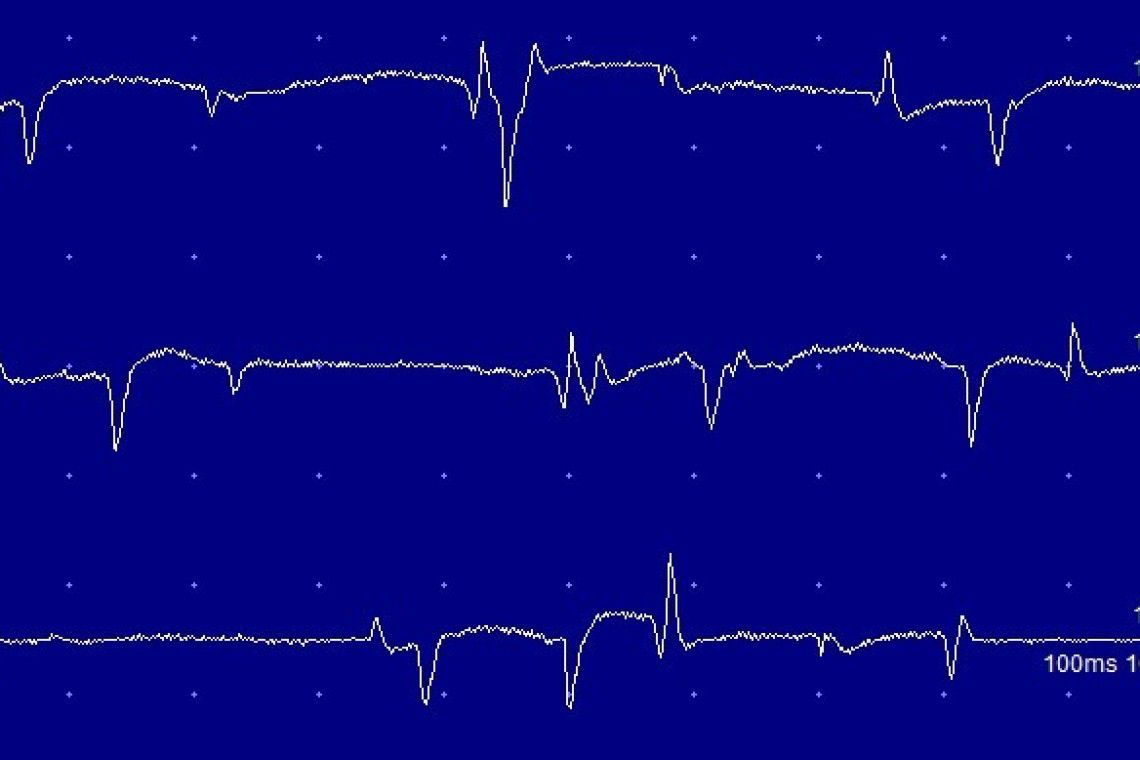
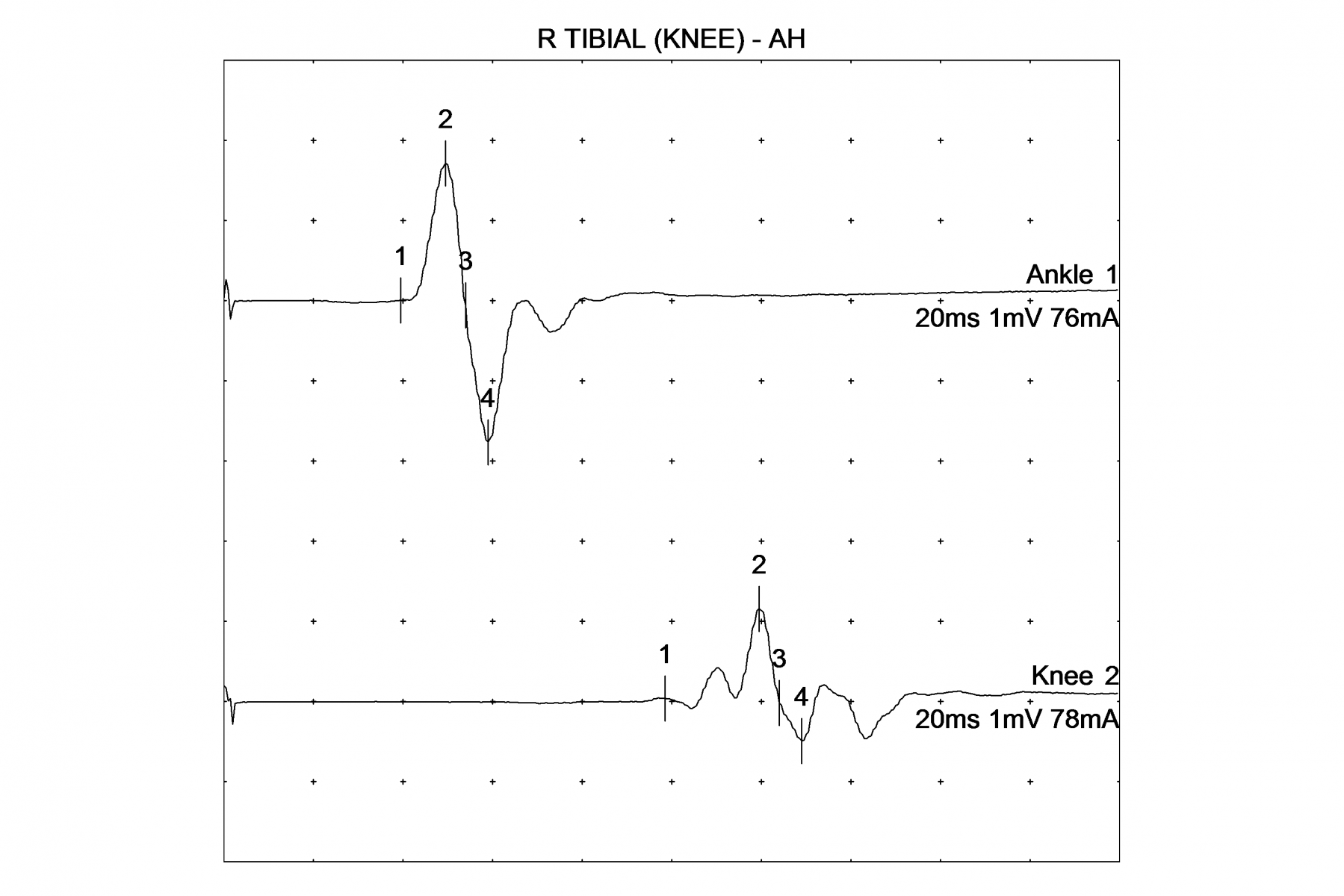
Muscle and nerve biopsy
Muscle and nerve biopsies are generally performed following electrophysiology investigation under the same general anaesthetic. Although this procedure is relatively easy to perform, it is important that biopsies are handled correctly and submitted to an appropriate laboratory. Depending on the severity of your pet’s condition they may or may not have to stay in the hospital following the biopsy procedure.
Other imaging
Other tests e.g. radiographs (x-rays), ultrasound or CT may be recommended and performed by our advanced diagnostic imaging team to look for associated or contributing diseases e.g. myasthenia gravis can be induced by a tumour in the chest called a thymoma.
How is neuromuscular disease treated?
Treatment obviously depends on the precise nature of the neuromuscular problem. Some neuromuscular diseases have a specific treatment, for example, endocrine disorders (hyperthyroidism, diabetes mellitus); myasthenia gravis (pyridostigmine and immunosuppressive therapy); and antiprotozoal agents for toxoplasmosis and neosporosis. For many degenerative neuropathies, there is no specific treatment however some patients may improve when given dietary supplements. Many severely tetraparetic animals will require considerable supportive care by our patient care team and chartered physiotherapists, and may also require feeding through a gastric feeding tube if they are unable to eat independently or if the neuromuscular disease is so severe they physiologically are not able to.
What is the prognosis of neuromuscular disease?
The prognosis of neuromuscular disease is very much dependent on the specific underlying cause of the disease. Once a definitive diagnosis has been made by your neurology clinician a more accurate prognosis can be given.
9 minute read
In this article
